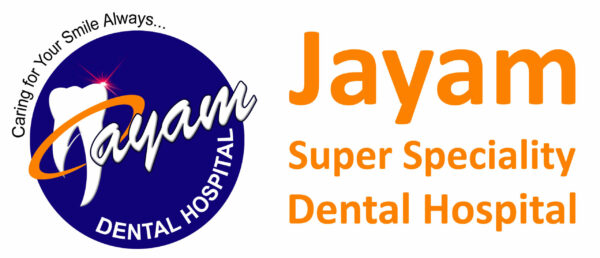Dental Implants Surgery in India
Are You Looking For Dental Implants?
Dental implants are artificial tooth roots which are inserted into the jawbone and artificial teeth are fixed on the top for a natural look.
Dental implants are root shaped artificial medical devices used for replacement of missing teeth, made up of titanium (widely used material for implants). These dental implants are inserted into the jawbone or Skull bones with a pin hole surgery under Local Anesthesia at The Dental Office. Over a period of time these dental Implants fuses with the bone by a process called Osseointegration and provide a strong foundation and supports fixed or removable artificial teeth that are made to mimic your natural teeth.


In the Recent decades Dental Implants are widely used and are most popular in dentistry to replace the missing / lost tooth or teeth lost due to various other reasons. Worldwide Implant dentistry is progressing rapidly due to its hike in demand and implant companies are manufacturing variety of dental implants depending on the requirement by the Dental implantologist. Dental implantologist diagnose your dental problem after reading your Digital Dental OPG (x – Ray), C.B.C.T (We have inhouse CBCT) and decides the treatment plan for placing the Dental Implants. Expert dental implantologist will choose the ideal dental implant depending on the number of missing teeth and available bone condition. Time period for dental implant treatment also plays a major role in selecting the dental implant. These implants are used to replace single tooth or multiple teeth.
Depending on number of missing teeth in the oral cavity
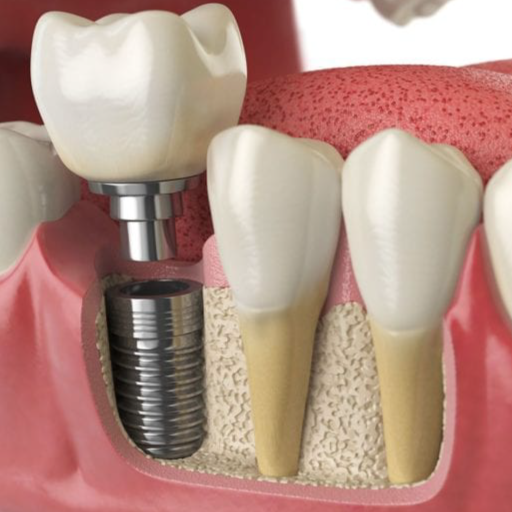
Single-tooth
implant
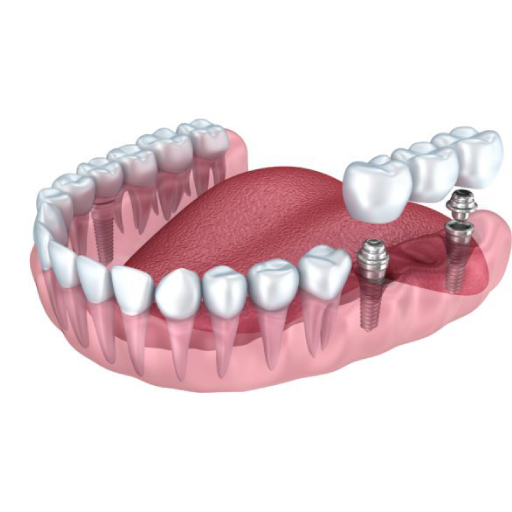
Multiple Teeth
Implants
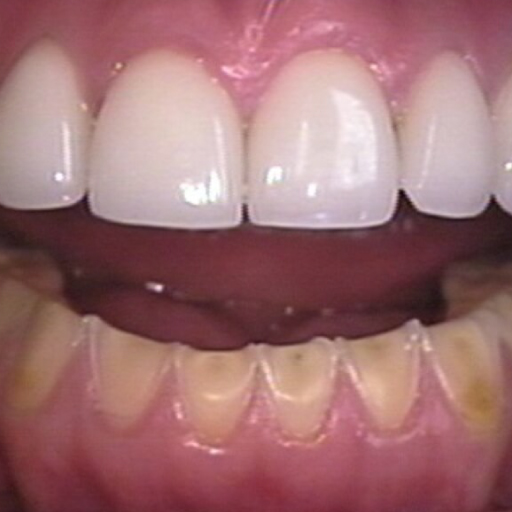
Full Mouth
Rehabilitation
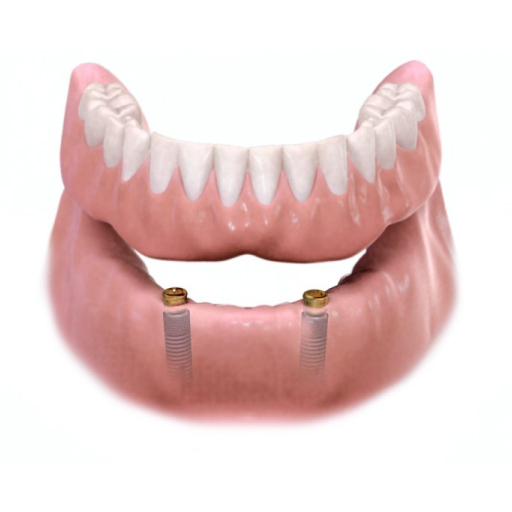
Implant supported removable dentures
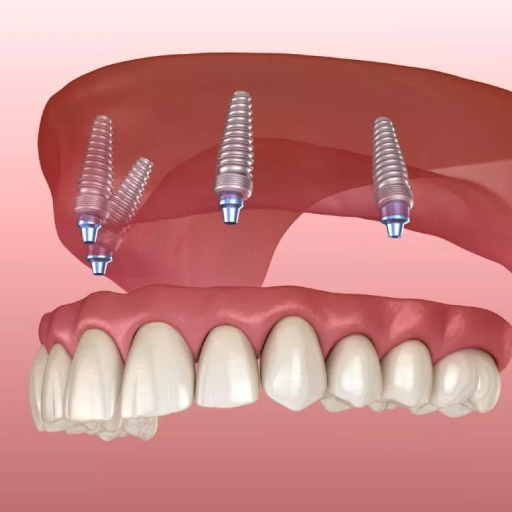
Fixed full mouth prosthesis
Depending on time period to fix the artificial teeth on the dental implants they can be of two forms

Immediate loading implants
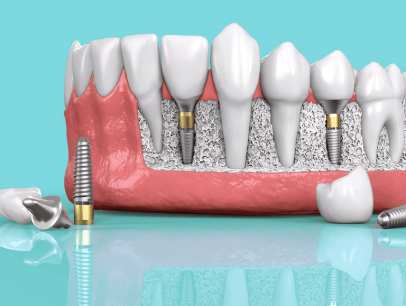
Delayed Loading Implants
Immediate loading implants: also called Cortico-Basal implants are thin, slender titanium implants which engages tough deep cortical bone (remains stable throughout the life) of the jaw or skull bones and provide rigid fixation for the replacement of missing natural teeth. Depending on the jawbone nature and available height and width Dental Implantologist chooses the preferred size and shape of the dental implant to be placed it the jawbone. Dental implant surgical procedure is a completely painless treatment if carried under an experienced and expert dental implantologist. Cortico basal dental implants are widely used in European and Asian countries since last eight decades. In this immediate loading implant concept, we use more number of implants than regular conventional implants or delayed loading implants. Due the uniqueness of the implants and procedure, artificial teeth can be fixed on the implants within three days after placing the dental implants. These basal implants can be used safely in diabetic patients, smokers, severe gum disease cases and severely resorbed jawbone conditions. Surgical procedure for basal implants is carried out without opening the gums and it is a simple pin hole surgery. Further no need of separate surgeries for placing the healing collar and abutments since these implants are designed as single piece (implant and abutments are not separate components) implants and teeth can be fixed directly on top of them within 72 hrs. In this technique no additional surgeries are required like bone grating, bone augmentation and sinus lifting, even though there is no bone support for placing the Dental Implants. After placing these implants silicon based dental impressions or Digital dental impressions can be made for laboratory procedure. Once ceramic or zirconia or hybrid prosthesis is ready that can be cemented directly on the implants.
Why To Replace The Missing Teeth With Dental implants?
In lifetime of any individual missing teeth is a major dental problem. Tooth lose may be due to poor maintenance of oral hygiene, trauma, mobile teeth due to gum infection or bone infection and severe dental decay which cannot be restored with root canal treatment. These missing teeth can be replaced with removable partial dentures or fixed partial dentures (bridge) or with dental implants to restore the function. If these missing teeth are not replaced with artificial teeth it can lead to various other consequences such as:
- In case of missing front teeth patient suffers with speech and pronunciation problems and difficulty in biting.
- Patient can’t chew the food properly in case of missing posterior teeth.
- Adjacent tooth drifts into the missing teeth area leading to development of gaps in the adjacent teeth.
- If patient loses all the teeth due to gum disease face looks older and wrinkles can be noticed on the skin around mouth and cheeks.
- In long term missing teeth condition jawbone also resorbs rapidly leading to reduced vertical height of the face. Which leads to Unesthetic appearance of face.
- Disoriented occlusion of the upper and lower teeth.
- Temporomandibular joint problems.
- Food impaction in adjacent teeth due to gap formation.
- Lack of overall confidence due to unesthetic appearance of face and unpleasing smile.
Replacement of these missing teeth help to overcome all the above-mentioned problems, which can be done with removable partial dentures or dental bridges or with dental implants successfully.
What are the Differences Between Removable Dentures, Dental Bridges and Dental Implants
Removable Dentures
- Low cost
- Difficult to wear
- Need to replace every 2 to 3 years once.
- Acrylic material
- Adjacent tooth loosening
Dental Bridges
- Cost depends on material used
- Comfortable but adjacent teeth are compromised
- Need to replace when problem arises in adjacent teeth due to decay or sensitivity. Bone loss continues in the missing teeth area and gap occurs between bridge and gums leads to food impaction.
- Ceramic or zirconia material
- Decay of adjacent teeth and bone loss. At times fracture of the adjacent teeth.
Dental Implants
- High Cost
- Comfortable and adjacent teeth are intact
- Rarely problem arises when the implant is placed by an experienced dental implantologist with proper expertise. Minimum bone loss can be noticed around dental implant over period of a time.
- Titanium implant and ceramic or zirconia crown
- None of the problems arises if maintain good oral hygiene.
Dental Implant Surgery
Dental implant surgery is a minor surgical procedure done under local anaesthesia in dental hospital by a Dental Implatologist.
Stages in dental implant procedure

Insertion of implant into the jawbone

Placing the healing collar

Fixing the implant abutment

Fixing the permanent teeth

Insertion of implant into the jawbone
Dental implatologist explains the surgical procedure to the patient and administers the local anaesthesia. Once patient is anaesthetised properly there should not be any pain while carrying out surgery. Now a days implant surgery is a complete pain - free procedure. We use all advanced dental equipment, dental implant kits and physio dispensers to make the patient more comfortable while performing the implant surgery. In our hospital we use all sterilized instruments, equipment and disposable materials wherever necessary for the surgical procedure. Implantologist prepare the surgery site and makes a small cut on the gums and exposes the bone surface. Then depending on the available jaw bone height and width and through thorough radiographic examination implantologist selects the exact size of implant which is suitable for the patient. using implant surgery kit implantologist does the osteotomy and insert the implant into the jawbone, covers the implant with small screw called cover screw and closes the gum with sutures. Now implant is submerged in the jawbone for healing. If jawbone is weak or height is less then implantologist need to do additional surgeries like bone grafting, sinus lifting or ridge augmentation to gain the bone support for the implant. Usually healing time for the implant treatment and for implant osseointegration is around 3 to 6 months. Then next surgical step will be performed after 3 to 6 months depending on osseointegration.

Osseointegration
Healing period starts immediately after placing the implant. Usually gum closure will take a week or two for healing. During this period patient should be careful while brushing and eating. During healing period jawbone modifies around the implant and slowly unites with the implant by bone formation around the implant in 3 to 6 months and becomes a part of jawbone. This process is called osseointegration. To check the osseointegration patient is advised for a dental OPG. Your dentist will take an x-ray to confirm whether the implant is fit for the second surgery or not. If Dental Implantologist confirms the osseointegration in the dental x - ray then implantologist will plan for second surgery to place the healing collar.

Healing Collar Placement
The second surgery is simpler than the first- and less-time taking procedure. During second surgery implantologist gives local anaesthesia to perform painless surgery. After giving anaesthesia implantologist reopens the gum above the dental implant with dental lasers. Healing Collar is then fixed on the dental implant after removing the cover screw for healing of gums for emerging dental implant abutment. After one or two weeks depending on the healing implantologist recalls the patient for 3 rd stage of procedure.

Implant abutment placement
After healing of the soft tissues(gums) around the healing Collar implantologist removes the healing Collar and fixes the Dental Implant Abutment. This is a simple and painless procedure and does not require any local anaesthesia. After placing the abutment silicon based impressions are made to prepare the permanent tooth. Or by a digital scan implantologist records a digital impression of upper and lower arches using the intraoral optical scanner. Using a 3D intra oral scanner for making digital impressions makes the impression more accurate to prepare the artificial teeth to fix them on the dental implants. Using these digital impressions, the crowns for the implants will be prepared by the dental laboratory.

Placement Of Permanent Crown
Once crown (artificial tooth) is ready it can be cemented on to the abutment. The crown exactly mimics your natural teeth. Tooth colour shape and size can be customised according to the patient need and the adjacent natural teeth morphology. The crown, however, will not be placed on the implant until the jawbone is strong enough to support the new tooth. It takes less than 2 to 3 days to make a permanent crown which will then be cemented or screwed to the Implant. After the permanent crown placement, your doctor will explain post-implant care instruction.
Post - Operative Instructions For Dental Implants
- Follow these post-operative instructions after Dental Implant procedure, and never hesitate in consulting the doctor for any queries or problems
- Avoid touching, spitting or rinsing the wound on the day of surgery. Don’t touch the metal healing abutment which is visible through the gum tissue.
- After implant surgery, it’s normal to have some bleeding or redness in the mouth for 24 hours. To control excessive bleeding, bite on a gauze pad (placed on the bleeding wound) for 30 minutes. If bleeding does not stop, seek further instructions from dentist.
- Swelling is natural after surgery. To minimize it, apply an ice pack on the cheek in the surgical area (you can also use a plastic bag or an ice-filled towel). Apply the ice as much as you could for the first 36 hours.
- Drink lots of fluids but avoid consuming hot beverages. Stick to soft diet on the day of surgery. You can get back to the normal diet once the surgical area is healed. Don’t drink anything using a straw.
- Start taking pain medication as soon as you feel the effects of the local anesthetic are going down., Take the medicines as prescribed by the dentist.
- Healing is not possible without good oral hygiene. Use the prescribed oral rinse day after surgery, use the prescribed oral rinse twice – after breakfast and before bed. Rinse for at least 30 seconds and then spit it out. Use warm salt rinses at least 4-5 times a day as well. Be gentle initially while brushing the surgical area and try not to affect the healing.
- Do not use, or consume, tobacco products in any form or any type after implants. It not only hinders healing but may also increase the chances of implant failure.
- Don’t engage in exercise immediately after the surgery or keep it minimal at best. You should know that exercise may cause bleeding or throbbing, This may weaken you since you’re not taking normal nourishment.
- Healing abutments will be placed at the time of implant placement. So, rinse them frequently and keep them clean. Wait for the stitches to dissolve and then clean the abutments through gentle massage.
- Don’t use partial or full dentures or flippers immediately after surgery or for 10 days afterward.
Post Implants Care
Good oral hygiene is important not just for your teeth and gums but also for overall wellbeing. Following these tips improve your oral health:
- Brush twice a day to maintain good oral hygiene
- Choose your toothbrush carefully and go for one with a small head and soft bristles
- Change your toothbrush after every two to three as frayed or worn-out bristles harm your teeth and gums
- Go gently & thoroughly and don’t use too much force while brushing as it might cause abrasion or wearing of tooth structure.
- Floss at least once a day to keep plaque, bacteria, and foods struck between the teeth out as it helps keep implants in good condition
- Take proper oral care at home to make your dental implants last a lifetime
- Use mouth rinses once a day after meals to stay on top of your oral health
- Don’t eat sticky foods as implants can attract more bacteria than your natural teeth for being artificial in nature
- Eating and drinking right can help your implants stay out of harm and good oral care can make them last forever.
Visit the dental clinic regularly and try to achieve good oral hygiene to make your implants last for life.
Frequently Asked Questions
Anyone can undergo dental implant procedure. In few situations where patients are suffering with serious illness like cancer, osteoporosis or some severe medical issues. He\She is advised to get consent from their specialist medical doctors.
Depending on the implant manufacturer and experience of the implantologist dental implant cost varies. It is almost equal to the cost of zirconia bridge.
Usually 15 to 30 min for each implant placement.
Usually, patients under 15 years are not advised implant procedures. But In special conditions we may take up the cases for surgery.
Dental implants are known to last for very long, especially with proper care. They can last for as long as 25 years or more.
For missing teeth, dental implants have become the most promising choice. If your mouth is missing most or all of the teeth, then procedures like all-on-four and all-on-six can help get full mouth dental implants or as suggested by the implantologist. If bone is weak or patient is diabetic then basal implants are advisable.
While getting dental implants from an expert implantologist, the patient will feel little or no pain. Part of the preparation for the implant includes administering a local anaesthetic so the patient does not feel any pain. After the procedure patient will put on pain killers and antibiotics. So post operative period also patient does not feel much pain.
We have different implants called basal implants which are suitable for smokers and diabetic patients.
Yes. Basal or cortical implants can be placed in severely resorbed jawbone conditions.
Yes. Using basal implnts even full mouth implant case can be completed in 3 days. If jaw bone is good using all – on – four or all – on six concept we can replace all the missing teeth in three days with conventional implnts also.
